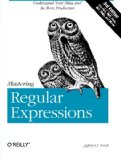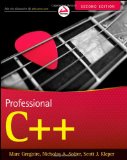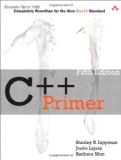C++11 raw strings literals tutorial
Posted on October 16, 2011 by Paul
Now, that I have a working system that can compile both regular expressions and raw strings literals, it is time to show you how you can further simplify the examples from the regex tutorial.
Basically a raw string literal is a string in which the escape characters (like \n \t or \" ) of C++ are not processed. A raw string literal starts with R"( and ends in )", let's see an in an example the difference between a normal string and a raw string in C++:
1 #include <iostream>
2 #include <string>
3
4 using namespace std;
5
6 int main()
7 {
8 string normal_str="First line.\nSecond line.\nEnd of message.\n";
9 string raw_str=R"(First line.\nSecond line.\nEnd of message.\n)";
10 cout<<normal_str<<endl;
11 cout<<raw_str<<endl;
12 return(0);
13 }normal_str will be processed at compilation time so you will see three lines of text and an empty line. In the case of the variable raw_str which is a raw string literal, the compiler will not process the escape characters, so you will see a single line of text with a content identical with what you have in the C++ source code.
If you compile and run the above code, saved in a file named "raw_string_00.cpp", this is what you should see:
1 sol@sol:~$ clang++ -std=c++11 -stdlib=libc++ raw_string_00.cpp
2 sol@sol:~$ ./a.out
3 First line.
4 Second line.
5 End of message.
6
7 First line.\nSecond line.\nEnd of message.\n
8 sol@sol:~$If you don't have clang and libc++ on your machine you could also compile the above code with g++-4.6.1, in this case you would use this line for compiling the code:
1 g++ -std=c++0x raw_string_00.cppor, for gcc-4.7 and up:
1 g++ -std=c++11 raw_string_00.cppThe above piece can not be compiled with Visual Studio 2010 which lack support for raw string literals at the time of this writing.
A first application of the concept of a raw string is in simplifying the syntax of the regular expressions. The coder can put his effort in writing a regular expression conformal to the ECMAScript standard and not in ensuring that his regular expression will be correctly processed by the compiler.
Take as an example the regular expression used in the regex tutorial for checking if the user input is an integer number. Without raw strings this is how the code should look (and if you want to use it with VS 2010 you must keep it this way):
1 regex integer("(\\+|-)?[[:digit:]]+");Using a raw string we can simplify the above piece of code, we can get rid of the escaping characters:
1 string raw_pattern=R"((\+|-)?[[:digit:]]+)";
2 regex integer(raw_pattern);or, a more condensed version:
1 regex integer(R"((\+|-)?[[:digit:]]+)");A pattern for matching a real numbers, see the regex tutorial, can be written this way:
1 ...
2 string input;
3 regex rr(R"(((\+|-)?[[:digit:]]+)(\.(([[:digit:]]+)?))?((e|E)((\+|-)?)[[:digit:]]+)?)");
4 cout<<"Give me a real number!"<<endl;
5 cin>>input;
6 if(regex_match(input,rr))
7 cout<<"float"<<endl;
8 else
9 {
10 cout<<"Invalid input"<<endl;
11 }
12 ...Similar expressions can be constructed for testing any kind of user input. If you want to learn more about regular expressions, the most authoritative source in the filed is the book Mastering Regular Expressions by Jeffrey E.F. Friedl:
If you are interested in learning more about the new C++11 syntax I would recommend reading Professional C++ by M. Gregoire, N. A. Solter, S. J. Kleper 2nd edition:
or, if you are a C++ beginner you could read C++ Primer (5th Edition) by S. B. Lippman, J. Lajoie, B. E. Moo.


